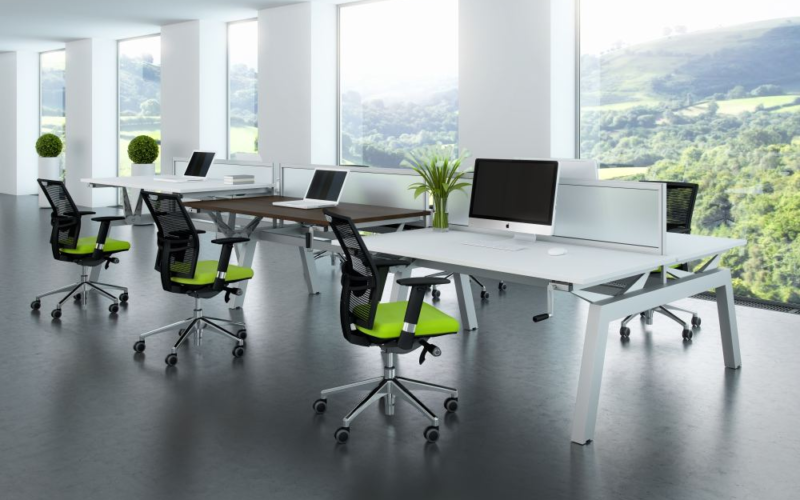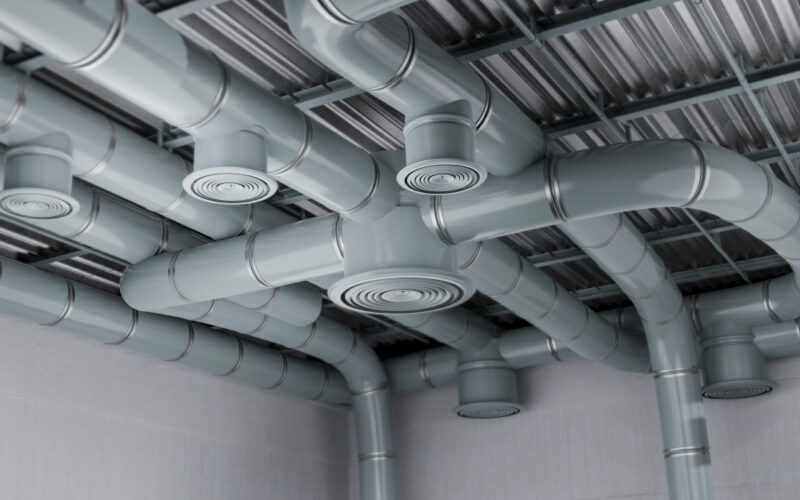
As the world becomes increasingly aware of the environmental challenges we face, the need for sustainable practices in every aspect of our lives is more critical than ever before. Businesses, both large and small, have a vital role to play in promoting eco-friendly initiatives and reducing their ecological footprint.
One area where businesses can make a significant impact is in their choice of office furniture. In this article, we will explore the importance of sustainable office furniture and highlight eco-friendly choices that Sydney businesses can adopt to contribute to a greener and more sustainable future.
The Significance of Sustainable Office Furniture:
Office furniture is a ubiquitous aspect of any workplace environment. However, many people are unaware of the significant environmental impact that conventional office furniture can have. The production of traditional furniture often involves the use of non-renewable resources, emits greenhouse gases, and generates significant waste.
- Environmental Conservation: One of the primary reasons for embracing sustainable office furniture is its positive impact on the environment. Traditional furniture production involves excessive use of natural resources, energy, and chemicals. On the other hand, sustainable furniture is made from eco-friendly materials such as reclaimed wood, recycled metal, and low-VOC (volatile organic compounds) finishes. By choosing such furniture, businesses contribute to reducing deforestation, minimizing waste, and lowering their carbon footprint.
- Health and Well-being: Sustainable office furniture often adheres to stringent health standards, promoting a healthier workspace for employees. Conventional furniture can emit harmful chemicals and toxins over time, leading to indoor air pollution and potential health issues. In contrast, sustainable furniture is crafted using non-toxic materials, improving indoor air quality and creating a safer and more comfortable environment for everyone.
- Long-Term Cost Savings: While the upfront cost of sustainable office furniture might be slightly higher, it proves to be a cost-effective investment in the long run. High-quality sustainable furniture is built to last, reducing the need for frequent replacements. This not only saves money on replacements but also reduces the demand for new furniture production, which in turn conserves resources and energy.
- Corporate Social Responsibility (CSR): Embracing sustainable office furniture aligns with a company’s CSR initiatives. It showcases the organization’s commitment to ethical and sustainable business practices. This commitment can positively impact a company’s reputation, attracting environmentally conscious clients, partners, and employees who value responsible corporate behavior.
- Boosting Employee Productivity and Morale: The workspace environment plays a crucial role in influencing employee productivity and morale. Sustainable office furniture, often designed with ergonomic principles in mind, promotes comfort and functionality. Comfortable and well-designed furniture can lead to improved employee satisfaction, better focus, and enhanced overall well-being. Employees are more likely to feel valued and motivated when working in a space that reflects the company’s commitment to sustainability.
Eco-Friendly Materials for Sustainable Office Furniture:
- Bamboo: Bamboo is a fast-growing, renewable resource that makes an excellent alternative to traditional wood. It can be used to create stylish and durable office furniture pieces, including desks, chairs, and shelves. Due to its rapid growth rate, bamboo can be harvested more sustainably than slow-growing trees, making it an eco-friendly choice.
- Recycled Materials: Using recycled materials to create office furniture is an effective way to minimize waste and conserve resources. Recycled plastic, metal, and wood can be transformed into functional and aesthetically pleasing furniture items, reducing the demand for new raw materials.
- FSC-Certified Wood: If using wood is unavoidable, opt for furniture made from wood certified by the Forest Stewardship Council (FSC).
- Eco-Friendly Fabrics: For office chairs and couches, choose fabrics made from sustainable materials such as organic cotton, recycled polyester, or hemp. These fabrics are not only eco-friendly but also free from harmful chemicals found in conventional textiles.
- Designing for Sustainability: Apart from choosing eco-friendly materials, the design of office furniture also plays a significant role in sustainability.
Here are some design considerations that businesses can keep in mind:
- Modularity: Modular office furniture allows for easy customization and reconfiguration, reducing the need for constant replacements and minimizing waste. The ability to add or remove components as needed makes it a practical and sustainable option for any office space.
- Durability: Investing in high-quality, durable furniture ensures that it will last longer, reducing the frequency of replacements. Durable office furniture not only saves money in the long run but also helps reduce the overall environmental impact.
- Ergonomics: Ergonomically designed furniture promotes the well-being of employees, leading to increased productivity and job satisfaction. By prioritizing ergonomic features, businesses can create a healthier and more sustainable workspace for their staff.
Implementing Sustainable Office Furniture in Sydney Businesses:
- Conducting a Sustainability Audit
Before making any changes to the office furniture, businesses should conduct a sustainability audit. This process involves evaluating the current furniture, identifying areas for improvement, and setting sustainability goals. It helps businesses understand their environmental impact and make informed decisions on adopting eco-friendly alternatives.
- Partnering with Sustainable Suppliers
Choosing the right furniture supplier is crucial in achieving sustainable office furniture goals. Businesses should seek partnerships with suppliers that prioritize sustainability, offer eco-friendly options, and demonstrate a commitment to responsible practices.
- Employee Education and Engagement
Employee buy-in and participation are essential for the success of any sustainability initiative. Businesses should educate their staff on the importance of sustainable office furniture and involve them in the decision-making process. This engagement creates a sense of ownership and fosters a culture of sustainability within the organization.
- Setting Green Furniture Policies
Establishing green furniture policies can formalize the commitment to sustainability. These policies may include guidelines for purchasing eco-friendly furniture, reducing waste, recycling old furniture, and encouraging responsible furniture disposal.
- Seeking Green Building Certifications
For businesses that own or manage their office spaces, seeking green building certifications, such as LEED (Leadership in Energy and Environmental Design), can reinforce their commitment to sustainability. These certifications take into account various eco-friendly aspects, including the use of sustainable office furniture.
The Benefits of Sustainable Office Furniture:
Choosing sustainable office furniture offers several advantages for businesses:- Environmental Impact: Perhaps the most significant benefit is the positive impact on the environment. By opting for eco-friendly materials and design, businesses can help conserve natural resources, reduce waste, and lower their carbon footprint.
- Corporate Social Responsibility: Embracing sustainable practices, including the use of eco-friendly office furniture, demonstrates a commitment to corporate social responsibility. This can enhance the company’s reputation and appeal to environmentally conscious customers, partners, and employees.
- Employee Health and Productivity: Sustainable office furniture, especially ergonomic designs, can improve the well-being and comfort of employees. Comfortable and healthy employees are more likely to be productive and motivated, leading to a positive impact on the overall business performance.
- Long-Term Cost Savings: While sustainable office furniture may require a higher upfront investment, the long-term cost savings are significant. Durable and well-made furniture requires less frequent replacements, reducing expenses over time.
- Local Initiatives and Resources: Sydney, like many other major cities, has numerous local initiatives and resources that businesses can tap into to support their journey towards sustainability.
- Green Building Council Australia (GBCA): GBCA offers Green Star certification for sustainable building projects, including office spaces. Utilizing Green Star-certified office furniture can contribute to achieving a more sustainable workplace.
- Sustainable Business Australia (SBA): SBA provides resources and support for businesses aiming to adopt sustainable practices, including eco-friendly office furniture choices.
- Local Eco-Friendly Furniture Retailers: Sydney boasts several local businesses specializing in sustainable office furniture. These retailers offer a wide range of eco-friendly options, ensuring businesses can find furniture that aligns with their values.
- Circular Economy Programs: Participating in circular economy programs allows businesses to recycle and repurpose office furniture at the end of its life cycle, diverting it from landfills.
Environmental Impact of Conventional Office Furniture:
Conventional office furniture, typically made from materials like virgin wood, plastic, and metal, has a considerable environmental impact from manufacturing to disposal. Some key concerns include:
- Deforestation
The production of wooden furniture contributes to deforestation, leading to habitat loss and an increase in carbon dioxide levels in the atmosphere. Illegal logging practices further exacerbate this issue.
- Chemical Off-Gassing
Many conventional office furniture items, such as synthetic chairs and particle-board desks, contain harmful chemicals like formaldehyde. These chemicals can off-gas into the air over time, contributing to indoor air pollution and potentially causing health problems for office occupants.
- Waste Generation
As businesses regularly update and replace their furniture, vast amounts of discarded office furniture end up in landfills. The slow decomposition of these materials releases greenhouse gases and toxins into the environment.
Conclusion
In conclusion, choosing sustainable office furniture in Sydney is not only an environmentally responsible decision but also a strategic choice for businesses. By opting for eco-friendly materials, thoughtful design, and local resources, businesses can reduce their ecological footprint, enhance their corporate social responsibility, and create a healthier and more productive workspace for their employees. Embracing sustainability in office furniture choices is a vital step towards a greener future, and every Sydney business has the power to make a positive impact on the environment by making these eco-friendly choices. Let us all work together to build a more sustainable and prosperous future for generations to come.





